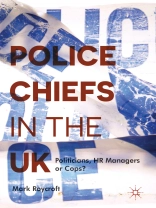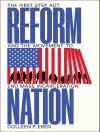This book examines the changing police landscape over the past 25 years to establish how Police Leadership has evolved to meet this challenge. Through interviews with 35 Chief Police Officers in the UK, the author explores a range of policing issues such as crime investigation, terrorism, police governance, austerity issues, the role of the IPCC and public order provision. The book also highlights views on key topics such as armed policing, globalisation of crime and the structure of forces. Building on the seminal text
Chief Constables: Bobbies, Bosses or Bureaucrats by Robert Reiner, which is this year celebrating its 25th anniversary, this book brings research on policing up to date with the modern world. An engaging and well-researched project, this book will be of great interest to scholars of criminal justice, policing and security studies.
Mục lục
Introduction.- Part I. The Current Model of Policing in the UK.- 1. How do the Police ‘police’ the UK?.- 2. The police function: What do the Police do?.- 3. How are the Police funded in the UK?.- 4. How Information Technology is shaping Policing?.- Part II. Crime and Terrorism: the interviewee’s views.- 5. Crime and Terrorism.- Part III. The Individuals; the Chief Constables and PCCs.- 6. The results of interviews with the Chief Constables.- 7. The results of interviews with the Police and Crime Commissioners.- Part IV. The Policing structure, the interviewee’s views.- 8. Collaboration and Force restructure.- 9. Accountability and Governance: the role of HMIC and IPCC.- 10. Conclusions: Towards a new model of Policing.
Giới thiệu về tác giả
Mark Roycroft is Senior Lecturer in Criminology at the University of East London, UK. Prior to his academic role, Mark completed 30 years of police service, where he attained the rank of Acting Superintendent at Colindale Police Station. As a Detective Chief Inspector, Mark had sole responsibility for running the main CID office on a daily basis with further duties including a regular attendance on Multi Agency Protection Panels (MAPPA) and supervising the local Community Safety Team.












